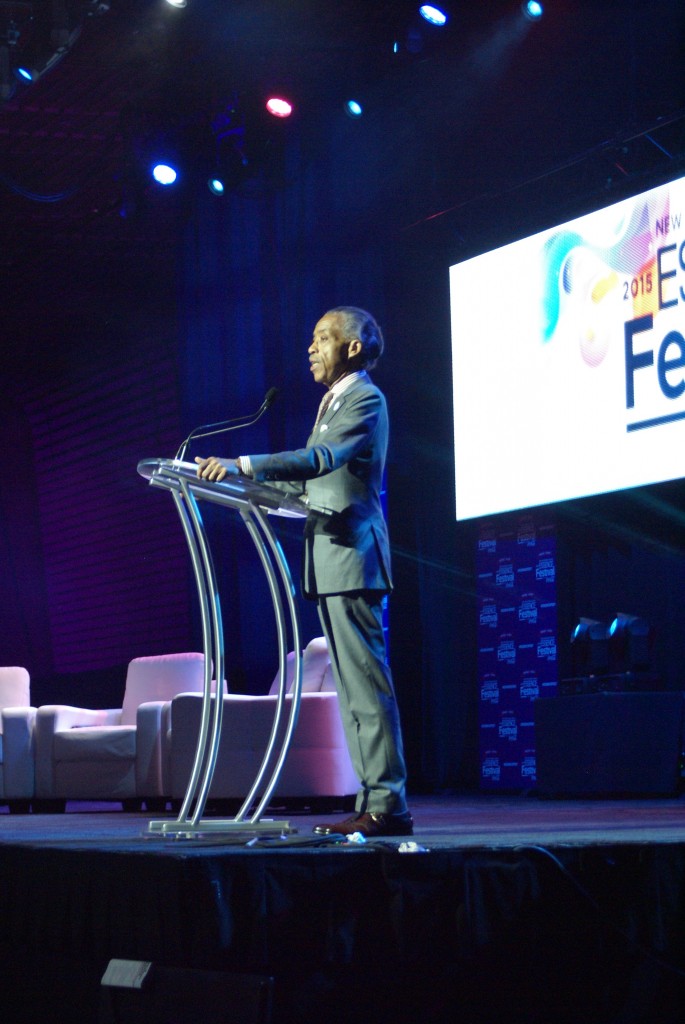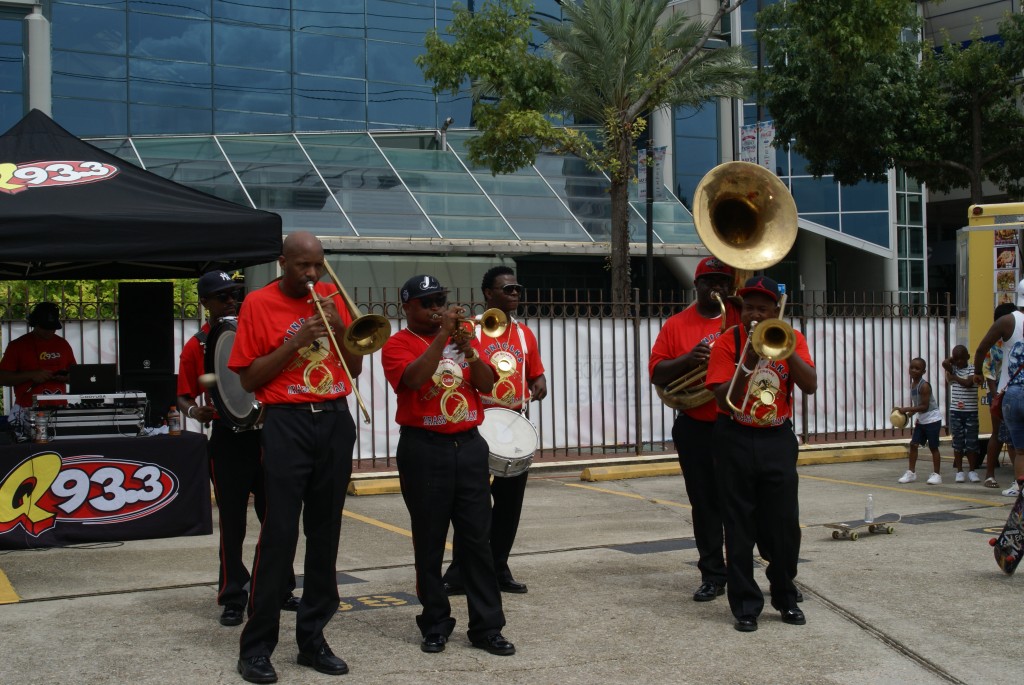From the Reverend Al Sharpton to Missy Elliot, Saturday’s jam-packed schedule of events showcased Essence Fest 2015‘s variety.
During a daytime panel entitled “#NoJudgementZone,” Keke Palmer led a discussion with some of the more controversial women in the public eye, reality stars Claudia Jordan and Mariah Hurq and author Karrine Steffans.
They delved into heavy issues of particular relevance to women and minorities: self-worth, childhood abuse, the public’s expectation (and hunger?) for black-on-black “catfights” in the media, learning not to care about what others think, the responsibility (or lack thereof) to serve as a representation of your race or gender in public eye, motherhood, and more.
It was an eye-opening talk characterized by mutual empathy. The animated 21-year-old Palmer (the child-actress-turned-Broadway-star who also hosted Friday’s 365Black Awards) has been the subject of many good-natured jokes about her age at this year’s fest, but she gives of a mature, unstudied humility (in addition to youthful enthusiasm) that many an older person could learn a lesson from.
Next up, the Reverend Al Sharpton took the stage, honoring the mission of Essence Fest with the statement that, over the course of African American history, “Our women not only had our back, they’ve been our back.” The short, powerful speech that followed reminded us that we do not live in a post-racial society, we live in the time of Charleston. The quest for equality and justice, Sharpton maintained, is a never-ending process that leaves no room for complacency.
He brought his thoughts back around to the festival at the end, noting that although attending Essence Fest may make you a participant, “what makes you an Essence Man or an Essence Woman is what you do when you leave.”
Meanwhile, at the Sugarmill across the street, the daytime DJ sets raged on. As with the previous two days, Saturday’s all-day party boasted booze, food, and a variety of performers getting down in the darkened venue, away from unrelenting blanket of hot humidity.
As per the DJ’s query, there was indeed plenty of Brooklyn, Atlanta, Dallas, etc., in the house, and everyone cheered, bumped, grinded, and sang the words together. The sets were compulsorily danceable and totally exhilarating.
(Nonetheless, slipping outside to the food-truck section an hour later, the second line rhythms of the Kinfolk Brass Band were a like a breath of fresh air.)
Later that evening in the Ford Superlounge at the Superdome, Esperanza Spalding’s new project “Emily’s D+Evolution” was thought-provoking and visually interesting. It was just as much performance art as musical concert, and Spalding (going by her middle name, Emily, in this incarnation) used poetic lyricism and unraveled musical forms to question the virtues of “civilization” and formal education. (Hence the pointedly-pronounced “+” in “devolution.”) More on this next week.
Meanwhile, the performers on the mainstage (looking like pinpricks from the upper level Superdome seats) struggled slightly in holding the audience in such a cavernous space but still delivered memorable performances.
Missy Elliot made it clear that she does not just “stand around in one place because I’m Missy Elliot.” She and her backup dancers (and a emerald-haired guest performer called Banji) worked up a sweat with high-energy choreography.
Partway through her set, with a wicked grin, the “Queen of Hip Hop” hopped off the stage and sprinted through the packed floor. Obscured by the cheering crowds, she darted up into the higher seats and wove throughout the aisles, to universal delight.
Well, near-universal. The jostling pack of harried-looking security guards scurrying to keep up with her all wore tight-lipped faces that plainly said they couldn’t wait for the night to be over.
They were a special case, though.





